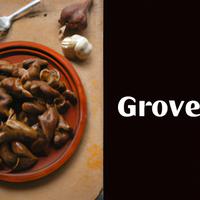
1 serving (100 grams) contains 155 calories, 27.0 grams of protein, 4.0 grams of fat, and 0.0 grams of carbohydrates.

Log this food in SnapCalorie

Nutrition Information
Calories |
369.0 | ||
|---|---|---|---|
% Daily Value* |
|||
| Total Fat | 9.5 g | 12% | |
| Saturated Fat | 2.9 g | 14% | |
| Polyunsaturated Fat | 0 g | ||
| Cholesterol | 571.4 mg | 190% | |
| Sodium | 166.7 mg | 7% | |
| Total Carbohydrates | 0 g | 0% | |
| Dietary Fiber | 0 g | 0% | |
| Sugars | 0 g | ||
| protein | 64.3 g | 128% | |
| Vitamin D | 0 mcg | 0% | |
| Calcium | 33.3 mg | 2% | |
| Iron | 6.4 mg | 35% | |
| Potassium | 564.3 mg | 12% | |
* Percent Daily Values are based on a 2,000 calorie diet. Your daily values may be higher or lower depending on your calorie needs.
Food Attributes
Source of Calories
About Turkey gizzards
Turkey gizzards are a nutrient-rich part of the turkey's digestive system, prized for their unique taste and chewy texture. Commonly used in Southern American, Asian, and African cuisines, they are often slow-cooked, fried, or added to stews for a savory depth of flavor. These organs are packed with protein, providing essential amino acids that support muscle health and repair. They're also a great source of iron, zinc, and selenium, key minerals that help bolster immunity and metabolism. Additionally, turkey gizzards contain B vitamins, including niacin and riboflavin, which promote energy production. While they are low in fat overall, they can become high in cholesterol if prepared with excessive oils or deep-frying methods. For healthier consumption, opt for boiling or braising techniques and pair them with leafy greens or whole grains for a balanced meal.



